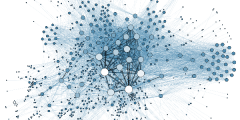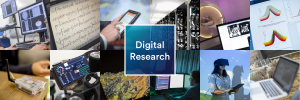From Subsystem to Super System – Windows Subsystem for Linux, a Gateway to HPC
September 21, 2020
If you are seeking to leverage the full extent of computational resources for your research, you are likely to end up using a Unix machine to run your software. This is especially true if you are developing software and data analysis pipelines on High-Performance Computing (HPC) facilities, like Augusta – our own HPC facility at …
Oxjam becomes Voxjam!
September 4, 2020
COVID-19 has profoundly disrupted the creative industries. The cancellation of in-person events, performances and exhibitions has seen a surge in the introduction of digital technology to allow people to still enjoy live events. By Paul Tennent and Steve Benford Oxjam is a national music event that raises money for Oxfam. Now in its 10th year, …
An Attempt at Automatically Classifying Political Leaflets Using Ludwig
September 3, 2020
In this blog, we discuss some innovative AI-driven work being undertaken in collaboration with Prof. Caitlin Milazzo from the School of Politics and International Relations. Ludwig is on open-source toolbox that allows the training and testing of deep learning networks without the need to write any code. In this pilot study we wanted to see …
Running an online poster session
September 1, 2020
In this blog, we look at options for hosting an online conference poster session. Teams can facilitate meetings of up to three hundred people and is a good option for those wanting to run virtual events. With a little creativity, you can easily incorporate a poster session into a Team. There is no fixed way …
Programming – it’s all a question of style!
August 24, 2020
Today we look at the creation and potential reuse of programming code. An inordinate amount of code is created by researchers and academics at the University, but how much of it is ever reused? Is it possible to reuse it, potentially by someone from another faculty, school or department? Can it be easily understood by …
How prototyping helps us move ideas off the drawing-board
August 4, 2020
This post describes how Digital Research uses Microsoft 365 tools like Power Automate to prototype future services, in collaboration with researchers. The Digital Research Specialists are often relied upon to bring researchers into the process of developing new digital services. Sometimes – when a service doesn’t exist yet – we also build our own “rapid …
Supporting the PGR community in working remotely
July 30, 2020
Following a recent town hall meeting for PGRs, there was clear feedback from the community around difficulties in accessing software and data remotely. Working with a number of postgraduate researchers, our Digital Research Specialists have helped explore a variety of technical options and found solutions that are available to the entire community. Depending on the …
A call for new Digital Initiatives
July 15, 2020
This post introduces our Digital Initiatives from 2019-20 and invites you to apply to work with us on Digital Initiatives in the coming year. “Digital Initiatives” have been part of the way Digital Research engages with the research community for the last four years. Since the start of 2016, Digital Research has helped fund almost …
Automated Transcription Service – from idea to launch
July 6, 2020
This post reveals more about the Automated Transcription Service and discusses a rapid-response “early access” trial for researchers impacted by COVID-19 restrictions. Do you record people’s speech as part of your research? Do you transcribe this for analysis or pass on the audio for others to transcribe? Our researchers will soon be able to use …
Making data meaningful for those with colour blindness
June 30, 2020
We look at some of the open source software helping researchers to make their research findings accessible to those with colour blindness, driving equality and inclusiveness. Eight percent of men are affected by colour vision impairment, having difficulties distinguishing between colours and thereby confusing certain colours that the majority of people see readily. As researchers …











